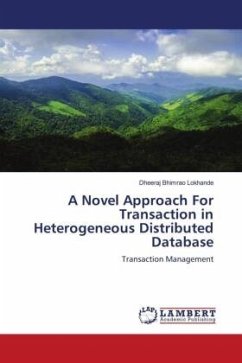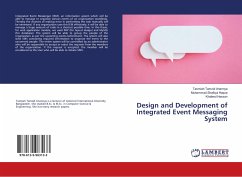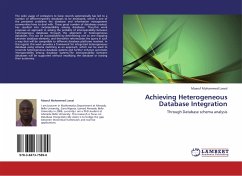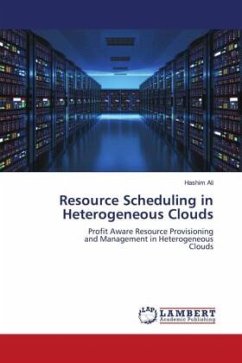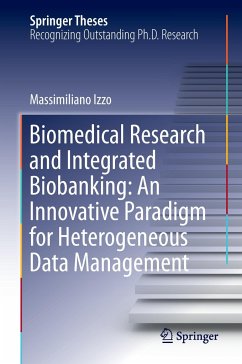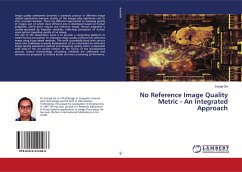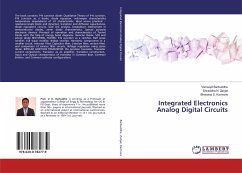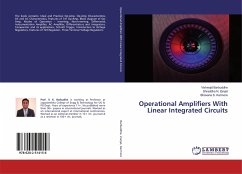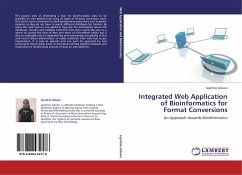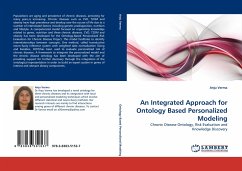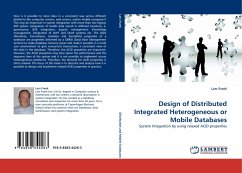
Design of Distributed Integrated Heterogeneous or Mobile Databases
System Integration by using relaxed ACID properties
Versandkostenfrei!
Versandfertig in 6-10 Tagen
45,99 €
inkl. MwSt.

PAYBACK Punkte
23 °P sammeln!
How is it possible to store data in a consistent way across different platforms like computer centers, web servers, and/or mobile computers? This may be important in system integration with more than one legacy/ERP system, integration of health data stored in different locations, e-governance, B2B integration, logistic management, Knowledge management, integration of OLPT and OLAP systems etc. The ACID (Atomicity, Consistency, Isolation and Durability) properties of a database are properties delivered by a DBMS (Data Base Management System) to make database recovery easier and make it possible...
How is it possible to store data in a consistent way across different platforms like computer centers, web servers, and/or mobile computers? This may be important in system integration with more than one legacy/ERP system, integration of health data stored in different locations, e-governance, B2B integration, logistic management, Knowledge management, integration of OLPT and OLAP systems etc. The ACID (Atomicity, Consistency, Isolation and Durability) properties of a database are properties delivered by a DBMS (Data Base Management System) to make database recovery easier and make it possible in a multi user environment to give concurrent transactions a consistent view of the data in the database. Therefore, the ACID properties are important. However, the ACID properties may slow down the performance and the response time of the system and it is not possible to implement across heterogeneous platforms. Therefore, the demand for ACID properties is often relaxed. The focus of thisbook is to describe and analyze how it is possible to design and implement relaxed ACID properties in practice.



